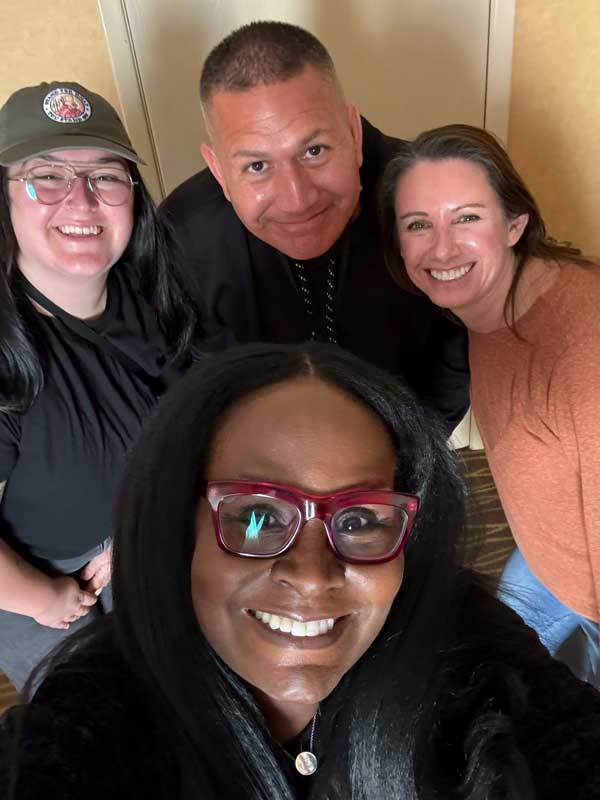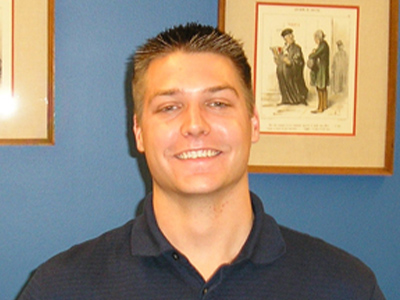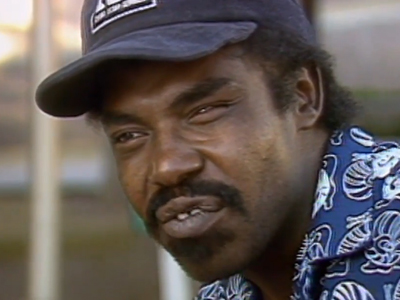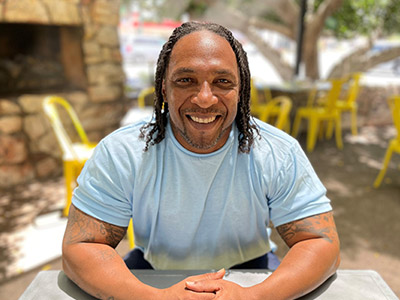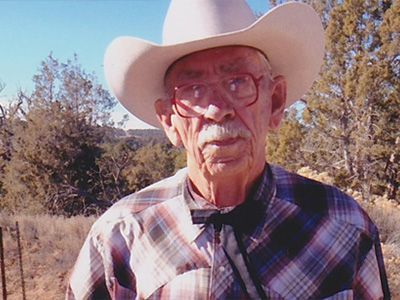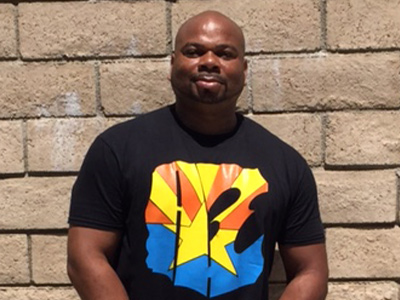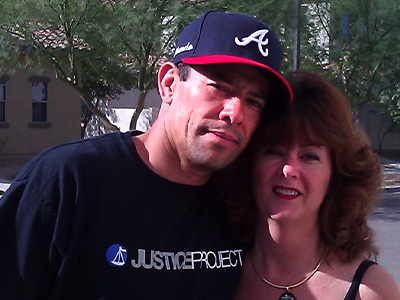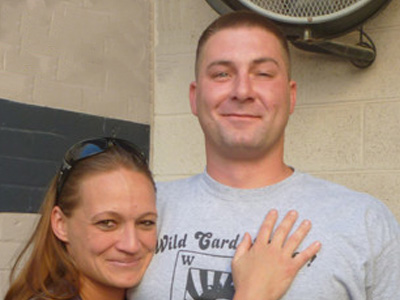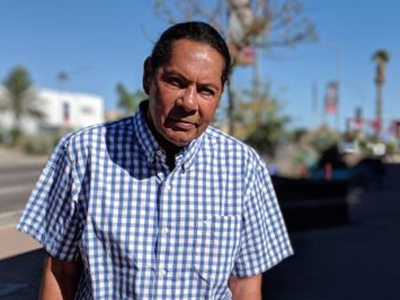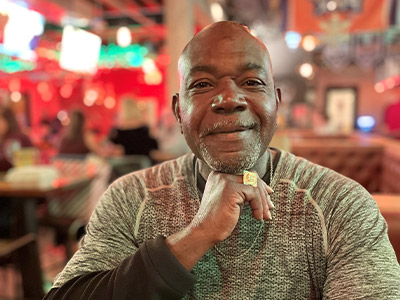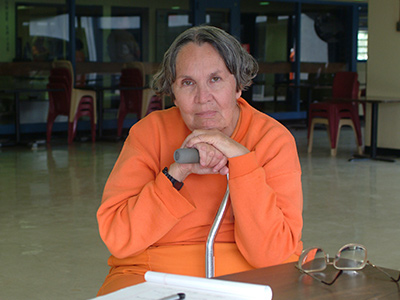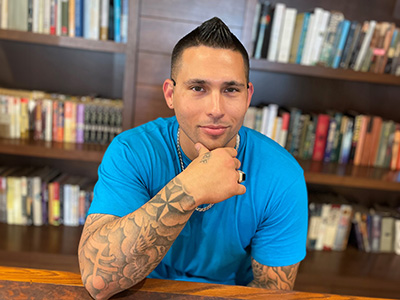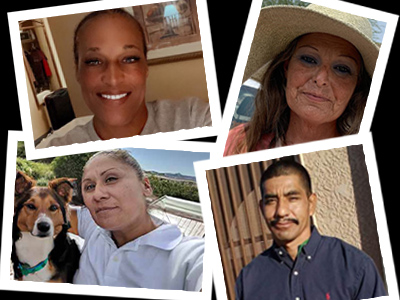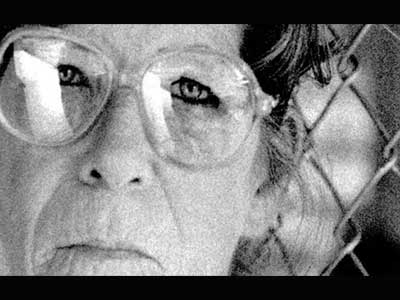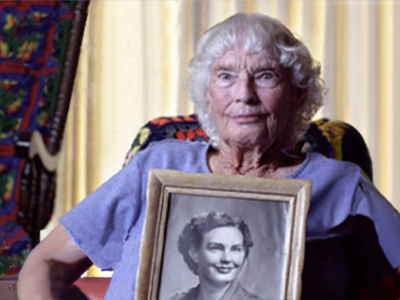Driven by Purpose
Areas of Focus
The programs driving our mission
The Arizona Justice Project has several programs aimed at freeing the innocent and correcting instances of manifest injustice within the criminal justice system.
Programs at a Glance
Innocence Cases
DNA
We work to identify and overturn convictions where modern DNA testing could prove innocence. With today’s technology, even decades-old evidence can help reveal the truth.
- Learn More
The Arizona Justice Project (AJP) is partnering with ASU and UofA law schools through a National Institute of Justice grant to review cases where post-conviction DNA testing could prove innocence.
Why DNA Matters
Before the mid-1990s, Arizona cases did not benefit from DNA evidence. Today, testing is so advanced that even microscopic skin cells can yield full DNA profiles — leading to hundreds of exonerations nationwide.
Challenges We Face
Many of these cases are decades old. Physical evidence can be hard to locate, and defendants often don’t know what evidence still exists or how DNA science has evolved.
Our Process
Identify cases where DNA could determine the actual perpetrator
Locate and access evidence
Submit for DNA testing
If DNA results support innocence, take legal steps to overturn the conviction
DNA testing not only frees the innocent — it helps protect public safety by identifying those truly responsible.
Non-DNA
The Arizona Justice Project handles cases where wrongful convictions have occurred but DNA evidence is either unavailable or wouldn’t conclusively prove innocence.
These cases often involve issues such as witness misidentification, outdated or unreliable forensic methods, false confessions, prosecutorial misconduct, ineffective defense, or other government-related wrongdoing.
Arson
For years, arson convictions were based on outdated techniques. AJP works to uncover the truth where lives were upended by flawed investigations.
- Learn More
Arson investigations are meant to determine whether a fire was accidental or intentional. But for decades, many of these cases were built on outdated and unscientific methods.
Historically, fire investigators relied on apprentice-style training and field experience, rather than scientific principles. Their conclusions often came from observation and intuition, not evidence-based analysis. There were no consistent standards for scientific or educational background — meaning many investigations lacked the rigor we now expect.
As modern fire science has evolved, it’s become clear that flawed techniques contributed to wrongful convictions. In some cases, the misuse of fire analysis has even led to findings of investigator misconduct.
In recent years, multiple Phoenix Fire Department investigators have come under scrutiny for questionable practices in arson investigations — raising serious concerns about past convictions and the need for review.
Prosecutorial Misconduct
Prosecutorial misconduct is a contributing factor in wrongful conviction cases across the country. Prosecutorial misconduct includes instances where prosecutors overstep their authority by either violating the law and/or professional ethics when prosecuting a case.
AJP former client, Khalil Rushdan, was exonerated after it came to light that the prosecutor in his case solely prosecuted Khalil after the actual perpetrator was acquitted.
Shaken Baby Syndrome (SBS)
Shaken Baby Syndrome (SBS) has led to wrongful convictions and family separations based on outdated and disputed medical assumptions. The Arizona Justice Project takes on these cases to challenge unreliable science and advocate for those harmed by misdiagnosis.
- Learn More
Many people have been wrongly convicted or lost custody based on a diagnosis of Shaken Baby Syndrome (SBS). SBS is a theory that a specific set of medical findings—brain swelling, brain bleeding, and retinal hemorrhages—is almost always caused by violent shaking or similar forces.
Common Beliefs About SBS
Diagnosed even without visible signs of abuse like bruises or neck injuries
Caregiver explanations such as illness or accidental falls often dismissed
Treated as near-certain proof that shaking caused the injuries
New Medical Perspectives
Experts now question if SBS can reliably distinguish accidental from intentional trauma
Shaking may not cause all symptoms once attributed to it
Other medical conditions and accidental falls can cause similar findings
Why AJP Takes These Cases
The Arizona Justice Project challenges SBS diagnoses because the science behind SBS is not fully validated, and its overdiagnosis has led to wrongful convictions and broken families.
Manifest Injustice Cases
Excessive Sentencing
Since its founding, the Arizona Justice Project has focused on addressing unfair and excessive sentences in the criminal justice system. While our clients may be guilty, their punishments often don’t fit the crimes they committed.
Clients like Eddie Collins, Louis Harper, and Atdom Patsalis faced prison terms far beyond what was fair. Atdom Patsalis was granted clemency, while Eddie Collins and Louis Harper were released through agreements with the State.
At AJP, we are committed to fairness in sentencing and fighting for second chances when they’re deserved.
Juvenile Life Without Parole (JLWOP)
AJP supports juvenile offenders serving life sentences and fights to end life-without-parole sentencing for youth in Arizona. We help affected individuals pursue relief following the Miller v. Alabama Supreme Court decision.
- Learn More
The Arizona Justice Project (AJP) is committed to supporting juvenile offenders sentenced to life or natural life in prison. We also serve as a resource for attorneys handling juvenile lifer cases in state and federal courts, as well as before the Arizona Board of Executive Clemency.
Our Work Includes:
Advocating to eliminate life-without-parole sentences for juveniles
Educating lawmakers and the Arizona Juvenile Justice Commission
Providing legal support and amicus briefs
Collaborating with other organizations on policy reform
Why It Matters
We believe life-without-parole for juveniles is a manifest injustice. Following the 2012 U.S. Supreme Court decision in Miller v. Alabama, which found mandatory LWOP unconstitutional for juveniles, AJP began identifying Arizona cases eligible for relief.
Scientific Support
Our advocacy is grounded in research showing that adolescent brains are not fully developed—evidence that shaped key Supreme Court decisions on juvenile sentencing.
Arizona Parole
Hundreds of Arizona prisoners were promised parole—but never received a hearing.
The Arizona Justice Project is working to restore that promise and ensure fair parole consideration for those affected.
- Learn More
In 1994, Arizona replaced parole with a system of community supervision.
Yet for years afterward, defense attorneys, prosecutors, and judges continued to sentence individuals—particularly lifers—with the belief that parole was still available.
As a result, hundreds of people were sentenced under the assumption they’d have parole eligibility, only to be denied parole hearings decades later.
The Arizona Justice Project challenged this injustice through the case of Abel Chaparro, where the Arizona Supreme Court ruled in his favor—affirming his right to a parole hearing based on the sentencing court’s original intent.
Many others, however, are still waiting.
AJP continues to advocate for those affected, working to restore fair parole consideration to everyone promised it under the law.

Shannon Liljenquist

Nevada Freeman
Battered Woman Syndrome
Some of the Project’s earliest cases involved women who committed crimes against their abusers.
In the mid 1990’s, the Arizona legislature opened the door for women with bona fide claims of abuse to seek clemency. The Project successfully represented several women with this claim.
Post-Conviction Advocacy
Marijuana Expungement Programs

To learn more about how to get your marijuana record expunged, please visit the Marijuana Expungement Coalition at azexpunge.org
Re-Entry
Re-Entry Assistance
The Arizona Justice Project’s social work team provides re-entry services to Arizona Justice Project clients. This service generally begins before an individual is released from prison and continues post-release. The social work team provides assistance with housing, social services, obtaining health insurance, finding employment, vocational training, technical training, family reunification, continued education, mental health support, rehabilitative services, and much more.
If you are seeking assistance with re-entry services, but you are not a client of the Arizona Justice Project, please visit this link for helpful resources:
- Identification and
- Driver’s License
- Legal Aide
- Health Insurance
- Food Support
- Education
- Employment
- Housing Resources
- Mental Health
- Support Services
